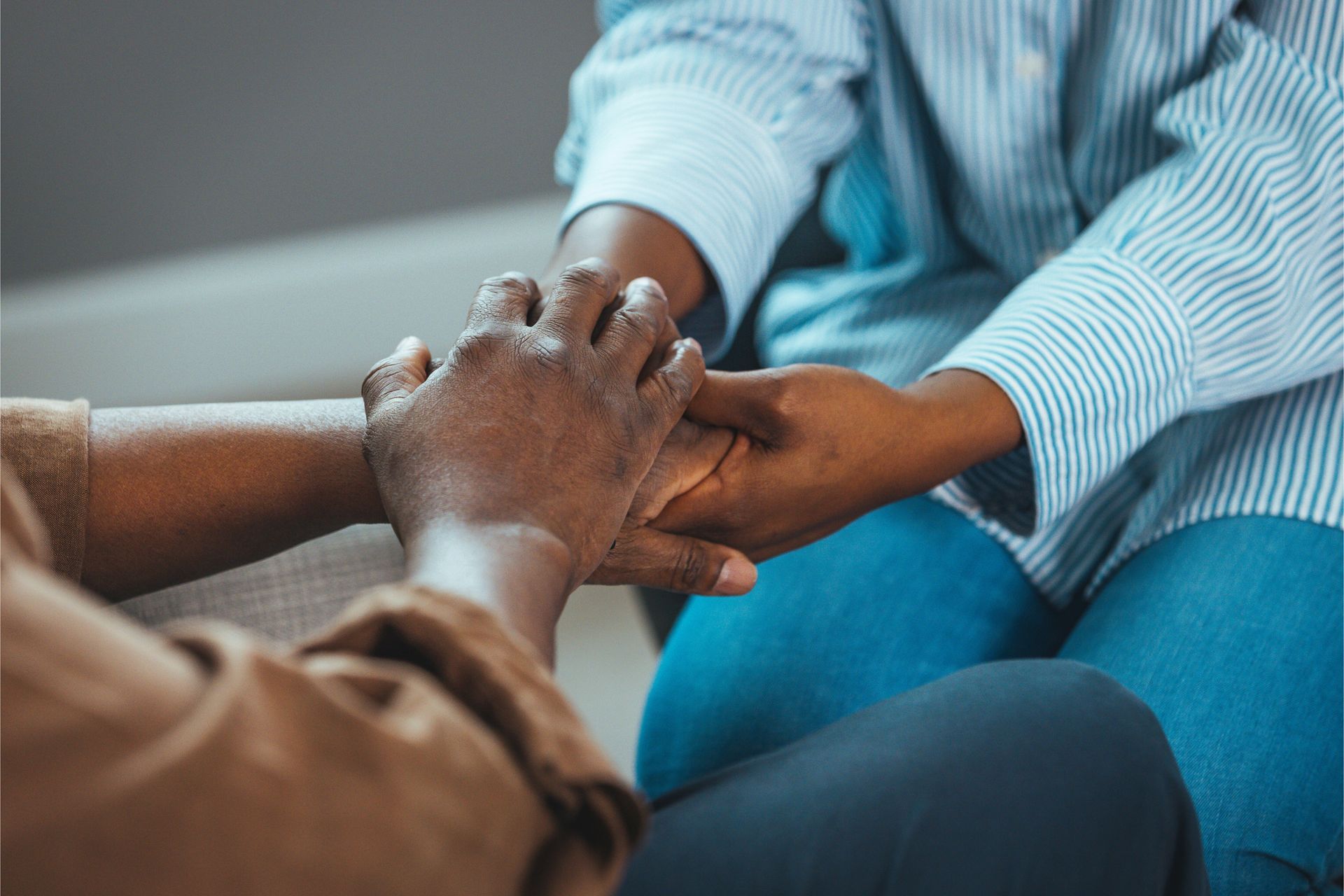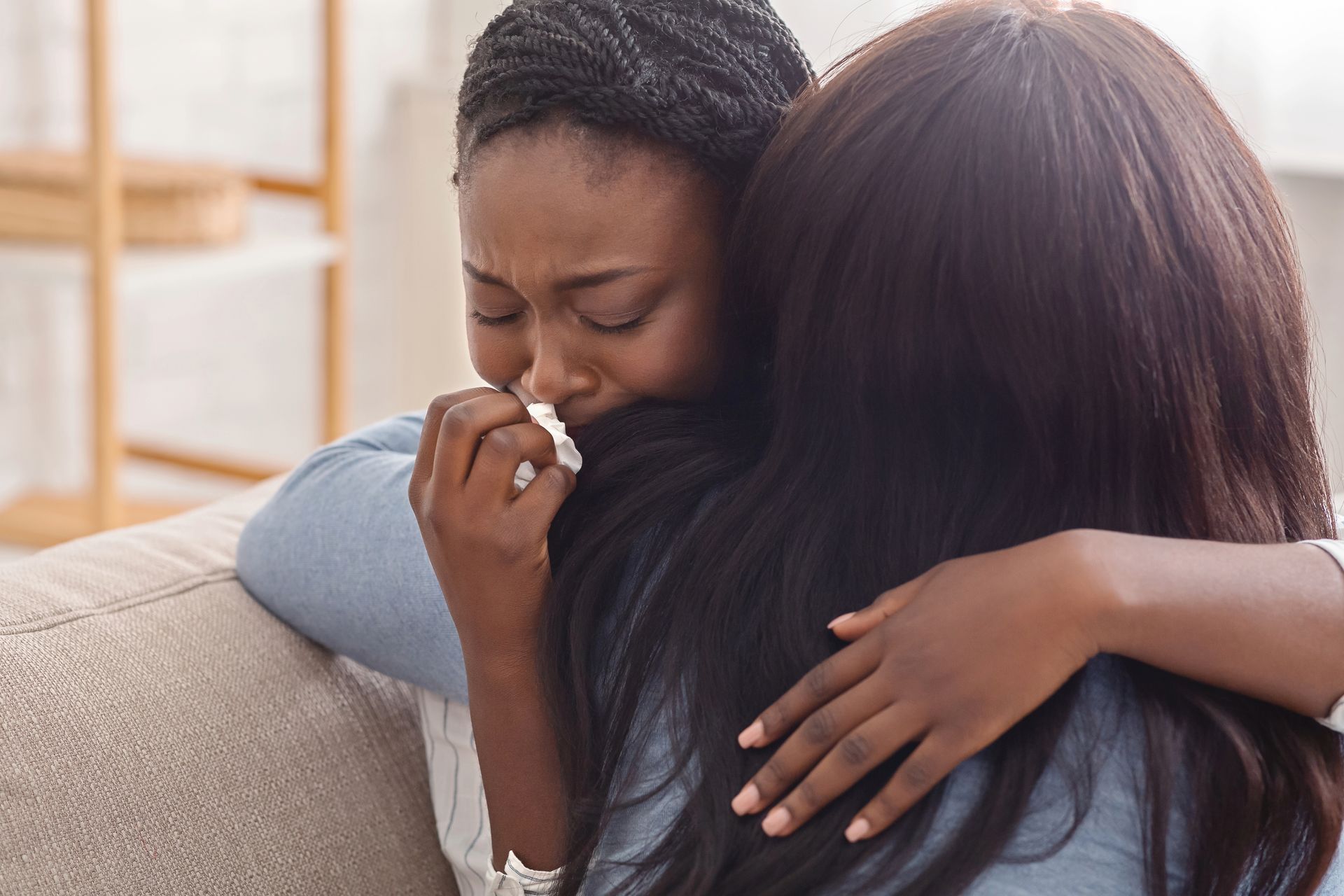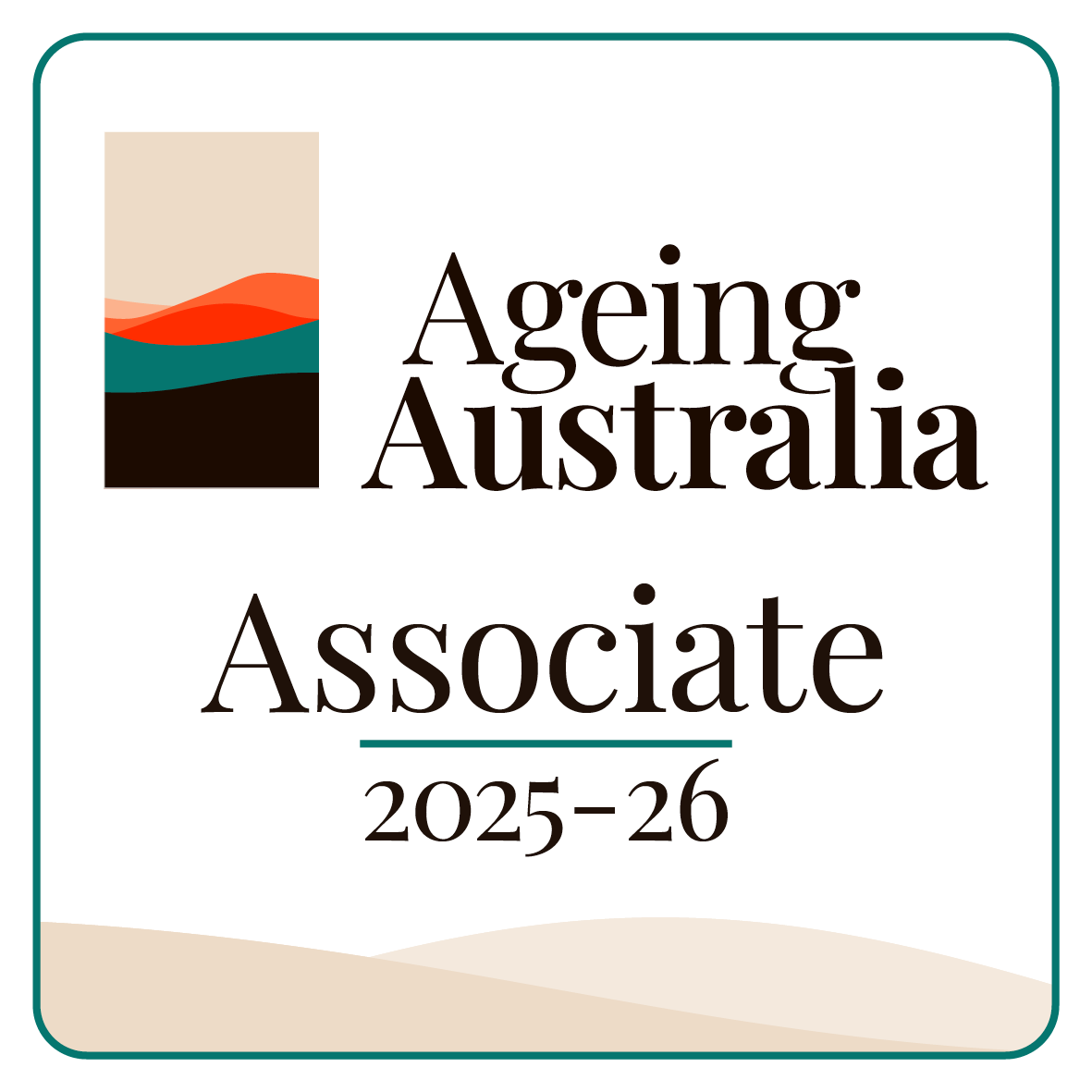INS LifeGuard
Coping with Grief: Strategies, Support, and Understanding Its Impact

Grief, a universal experience, is a deeply personal response to loss. While it’s often associated with the death of a loved one, grief can also stem from various life changes, such as the end of a relationship, loss of a job, or a significant health diagnosis. Understanding the types of grief and learning how to navigate it can help those affected begin to heal and find support during challenging times.
Types of Grief
Grief manifests in different forms, influenced by the nature of the loss, cultural context, and individual coping mechanisms. Below are the primary types:
Anticipatory Grief
Occurs before a loss, often in situations where a loved one is facing a terminal illness. People may experience sadness, anger, or guilt as they prepare for the inevitable loss.
Normal Grief
Normal grief is the typical response to loss, where sadness, yearning, and adjustment gradually lessen. While painful, normal grief follows a trajectory that allows for healing.
Complicated Grief (Persistent Complex Bereavement Disorder)
In some cases, grief can become prolonged and intense, interfering with daily life. Symptoms include overwhelming sadness, difficulty accepting the loss, and a lack of progression toward healing.
Disenfranchised Grief
Disenfranchised grief occurs when a loss is not openly acknowledged or validated by society. Examples include the loss of a pet, miscarriage, or the death of an ex-partner, where individuals may feel unsupported in their mourning.
Collective Grief
This type of grief is experienced on a larger scale, such as during natural disasters, pandemics, or societal tragedies. It connects individuals through shared loss and mourning.
Secondary Losses and Grief
These involve losses that arise indirectly from the primary loss. For instance, a spouse’s death may also result in financial strain, loss of social connections, or changes in identity.
The Process of Grief
Grief is not linear, and individuals may experience it differently. However, many people go through the following stages:
Denial
Shock or disbelief about the loss.
Anger
Feelings of frustration or helplessness.
Bargaining
Hoping to reverse or delay the loss.
Depression
Deep sadness as the reality of the loss sets in.
Acceptance
Acknowledging the loss and finding ways to move forward.
It’s important to note that not everyone will experience all these stages in a specific order.
Self-Help Strategies for Coping with Grief
While grief is a natural process, there are ways to support yourself as you navigate its challenges:
Acknowledge Your Feelings.
Acknowledging and allowing yourself to feel the full range of emotions, including sadness, anger, and guilt, is crucial. Suppressing these emotions can prolong the grieving process. Remember, your feelings are valid and deserve to be heard.
Practice Self-Compassion.
Be kind to yourself. Grief is exhausting, so prioritise rest and permit yourself to grieve without judgment.

Maintain a Routine.
Daily routines provide structure and a sense of normalcy. Small tasks like making your bed or preparing meals can feel grounding.
Express Yourself.
Find healthy outlets for your emotions, such as journaling, creating art, or speaking with a trusted friend.
Stay Connected.
Reach out to loved ones for support. Isolation can intensify grief, while connection helps foster healing.
Engage in Physical Activity.
Exercise can boost mood by releasing endorphins and reducing stress. Activities like walking, yoga, or gardening can be gentle and restorative.
Set Boundaries.
Grief can be overwhelming, and it is okay to limit social interactions or responsibilities to focus on one’s well-being.
Seeking Support for Grief
Grief can feel isolating, but you don’t have to face it alone. Here are ways to seek help:
Therapy and Counselling
- Individual Therapy: Talking to a licensed therapist can provide personalised coping strategies.
- Grief Counselling: Specialists can guide you through the grieving process and help address complicated grief.
- Group Therapy: Sharing experiences with others who are grieving can foster a sense of connection and understanding.
Support Groups
- Many communities and organisations, such as GriefShare or local hospice services, offer support groups tailored to specific types of loss.
- Online forums and virtual groups provide an accessible way to connect with others experiencing similar feelings.
Helplines and Hotlines
Many helplines, such as Lifeline or specific bereavement services, provide 24/7 support for those struggling with grief.
Faith or Spiritual Communities
Connecting with a faith-based group or leader can provide guidance and solace for those who find comfort in spirituality.
Supporting Someone Who Is Grieving
When someone you care about is grieving, offering thoughtful and compassionate support can make a significant difference. Here are some ways to help:
- Listen With Empathy: Give them the space to share their feelings without interrupting or trying to solve their pain. Simply being there and listening can be incredibly comforting.
- Show Patience and Understanding: Grief is a deeply personal process; everyone moves through it at their own pace. Avoid imposing timelines or expectations.
- Provide Practical Assistance: Offer to help with specific tasks such as cooking, running errands, or taking care of household chores. This support lightens their load and shows you care.
- Stay Consistent: Grief doesn’t disappear after a few weeks. Regularly check in to let them know you’re still there for them, even as time passes.
- Choose Words Carefully: Avoid clichés like “They’re in a better place.” Instead, acknowledge their pain with heartfelt statements such as, “I’m here for you” or “I’m so sorry for your loss.”
By offering a listening ear, ongoing support, and practical help, you can provide meaningful comfort to someone navigating the problematic grief journey.
Does Grief Affect People Differently Depending on Age?
Yes, grief can affect people differently depending on their age due to varying life experiences, coping mechanisms, and developmental stages. Here’s how grief might impact different age groups:
Understanding Loss:
Younger children may not fully understand the permanence of death or loss and might view it as temporary. They may express grief through behaviour changes rather than words, such as clinginess, anger, or regression (e.g., bed-wetting).
- Coping Mechanisms: While better able to grasp the reality of loss, adolescents might struggle to articulate their emotions. They may act out, withdraw, or become hyper-focused on school or hobbies to cope.
- Support Needs: Children and teens often need reassurance, honest communication, and age-appropriate explanations to help them process grief. Providing a stable routine and a supportive environment is critical.
Young Adults (20s-40s)
- Life Pressures: Grief in young adulthood often intersects with life transitions such as starting a career, building relationships, or raising a family. These pressures can amplify the emotional toll of a loss.
- Coping Styles: Many young adults may push through grief due to work or caregiving responsibilities, delaying emotional processing. This can lead to complications such as anxiety or depression.
- Support Needs: It can be beneficial to encourage young adults to prioritise self-care and seek support through therapy, support groups, or trusted relationships.
Middle-Aged Adults (40s-60s)
- Multiple Losses: In middle age, people are more likely to experience cumulative grief, such as the loss of parents, friends, or spouses. Balancing these losses with responsibilities like work, caregiving, or parenting can add to the emotional burden.
- Coping Styles: Many in this group prioritise other’s needs over their own, which can delay their healing process. They may also experience anticipatory grief when caring for an aging or terminally ill loved one.
- Support Needs: Providing opportunities for self-reflection, encouraging open discussions, and seeking professional support when needed can help.
Older Adults (65+)
- Frequent Losses: Older adults often face the loss of peers, spouses, and sometimes children. These experiences can compound over time, increasing the emotional toll of grief.
- Impact on Health: Grief in older adults can lead to physical health issues such as increased blood pressure, weakened immunity, or sleep disturbances. It may also exacerbate existing mental health conditions like depression or anxiety.
- Coping Styles: Many older adults find solace in shared memories, spirituality, or community. However, those who lack social support are at greater risk of isolation and complicated grief.
- Support Needs: It is vital to encourage participation in social or community activities, offer grief counselling, and address physical health concerns.
Does Age Change the Duration or Intensity of Grief?
While the duration and intensity of grief vary from person to person, age-related factors such as life experience, support networks, and emotional resilience play a significant role in shaping how individuals process loss.
- Children and adolescents may revisit their grief as they age and gain a deeper understanding of the loss.
- Young adults might struggle more with the suddenness of a loss, significantly when it disrupts their life plans.
- Older adults often grapple with cumulative grief and its impact on their independence and identity.

Understanding these differences can help caregivers, family members, and friends provide age-appropriate support, ensuring those grieving feel understood and cared for.
When Grief Becomes Overwhelming
Grief is a natural response to loss, but in some cases, it can have a profound impact on mental health, potentially leading to serious challenges. Awareness of these effects and recognising when to be concerned, can help ensure that a grieving person receives the support they need.
Ways Grief Can Affect Mental Health
Persistent and Intense Sadness
While sadness is a normal part of grieving, prolonged and overwhelming despair that doesn’t improve over time may indicate depression. This includes hopelessness, worthlessness, or a lack of interest in previously enjoyed activities.
Anxiety and Panic Attacks
Grief can trigger intense anxiety, including fears of losing other loved ones or a heightened sense of vulnerability. In severe cases, it may manifest as panic attacks or feelings of restlessness and unease.
Social Withdrawal
A grieving person may isolate themselves from friends and family, avoiding social interactions or support systems. While some withdrawal is regular, extreme isolation can worsen feelings of loneliness and despair.
Sleep Disruptions
Grief can lead to insomnia or hypersomnia (excessive sleeping), both of which can harm overall mental health. Persistent sleep disturbances can exacerbate emotional struggles, impair concentration, and impact daily functioning.
Difficulty Concentrating
Trouble focusing or making decisions is common in grief, but if cognitive challenges persist, it may interfere with work, relationships, or daily responsibilities.
Physical Symptoms
Emotional pain, such as headaches, stomachaches, or fatigue, often manifests physically. Chronic physical symptoms related to grief can lead to further mental health strain.
Self-Blame or Guilt
Some individuals experience feelings of guilt or self-blame, especially if they feel they could have done something to prevent the loss. This can become all-consuming and hinder emotional healing.
Substance Abuse
To cope with grief, some individuals may turn to alcohol or drugs, which can lead to dependency and further mental health challenges.
Complicated Grief
Also known as Persistent Complex Bereavement Disorder, this condition involves an inability to move forward after a loss, with symptoms such as an intense preoccupation with the deceased, extreme avoidance of reminders, or profound emotional numbness.
When to Be Concerned About Someone’s Grief
Consider seeking professional help if you notice the following signs:
Ways Grief Can Affect Mental Health
Prolonged Intense Grief
If sadness, hopelessness, or yearning for the deceased continues unabated for more than six months and interferes with daily life.
Thoughts of Self-Harm or Suicide
Expressions of wanting to die, harm themselves, or feel like life is no longer worth living are urgent red flags.
Inability to Function
They may need intervention if they struggle to meet fundamental responsibilities, such as maintaining hygiene, going to work, or caring for dependents.
Extreme Isolation
Avoiding all social contact for an extended period can worsen emotional distress and hinder recovery.
Substance Abuse
Excessive reliance on alcohol or drugs to cope with grief can quickly spiral into addiction and amplify mental health challenges.
Paranoia or Detachment
Signs of paranoia, hallucinations, or extreme detachment from reality may indicate a severe mental health concern.
How to Help Someone in Distress
Encourage Open Communication
Gently express your concern and offer to listen without judgment. Say, “I’ve noticed you’ve been struggling, and I want to be here for you.”
Suggest Professional Help
Recommend grief counselling, therapy, or support groups. You can say, “Talking to a professional might help you feel better and navigate this.”
Offer Practical Support
Help with daily tasks, accompany them to appointments, or assist them in finding resources such as therapists or support groups.
Stay Connected
Regular check-ins show you care and help reduce feelings of isolation.
Act Immediately in Crisis
If someone expresses suicidal thoughts or severe distress, seek emergency help by contacting a crisis hotline or taking them to a healthcare provider.
Conclusion
Grief is a complex and deeply personal journey, but it is also a process of healing and adaptation. By understanding its various forms, practising self-care, and seeking support when needed, it’s possible to move forward while honouring the loss. Remember, you’re not alone. Numerous resources and support networks are available to help you through this journey.
At INS LifeGuard, we recognise that mental health is equally important to physical health. That’s why our
personal alarm monitoring system extends beyond emergency response to offer welfare checks and emotional support to those in our care. With compassion and expertise, our highly trained nurses are available 24/7 to assess situations and provide a comforting listening ear whenever you need someone to talk to—anytime, anywhere.

About
INS LifeGuard is the only 24/7 nurse on-call personal and medical monitoring in Australia. We provide monitoring technology for both in the home and on the go and can also monitor other provider's equipment. Our services are suitable for anyone wanting support to stay independent such as the elderly, those with medical conditions and disabilities plus enhancing safety and security for lone workers.
















